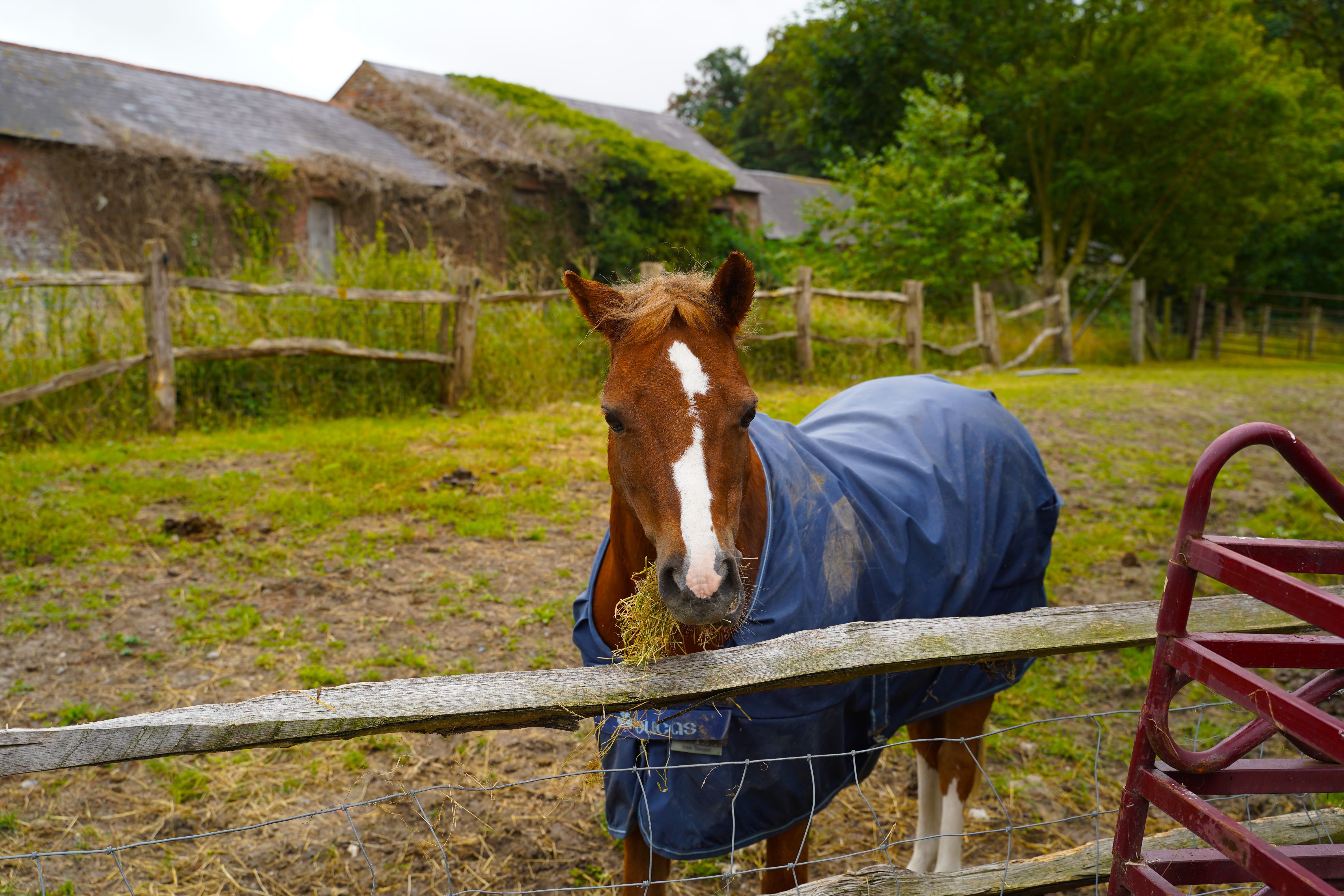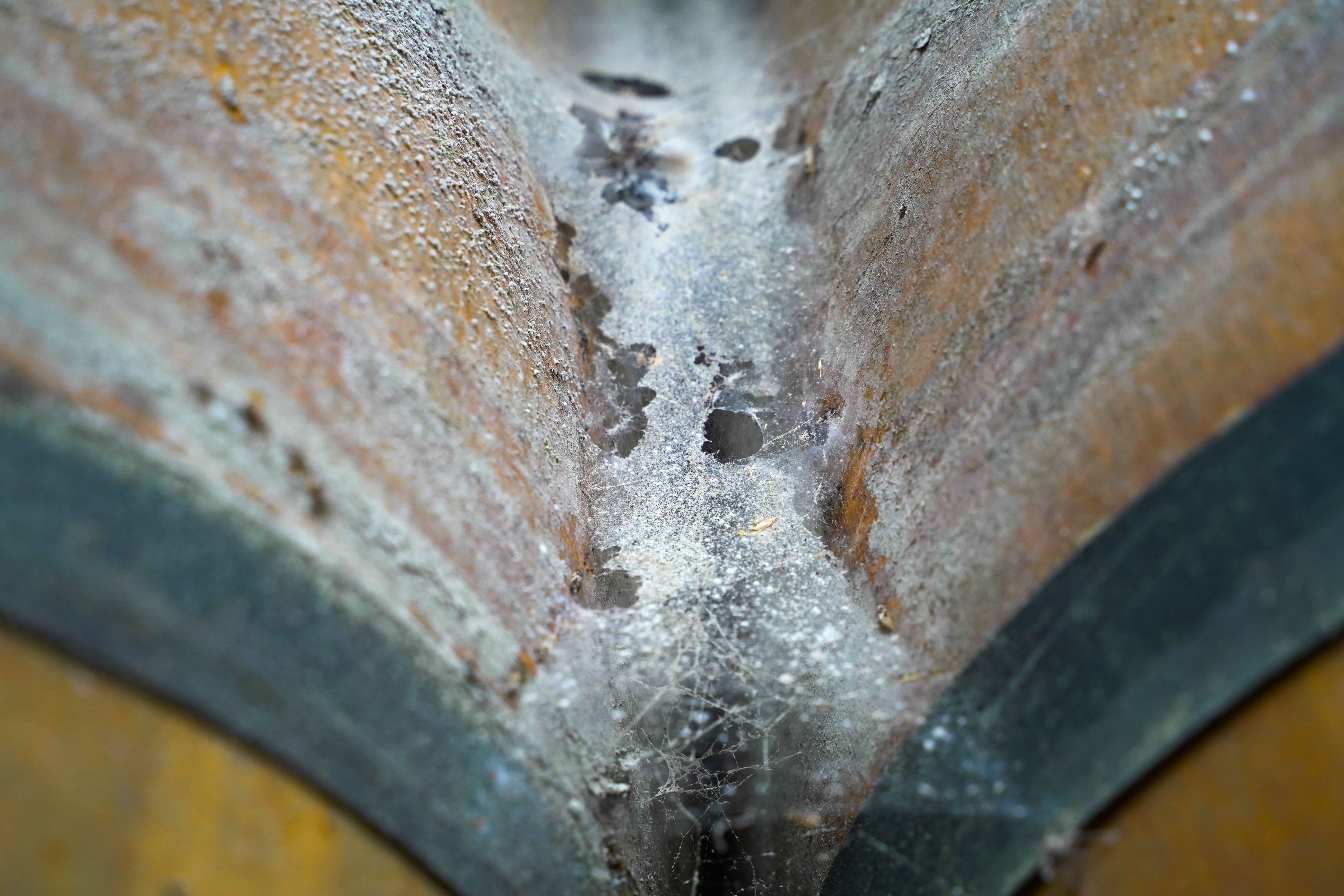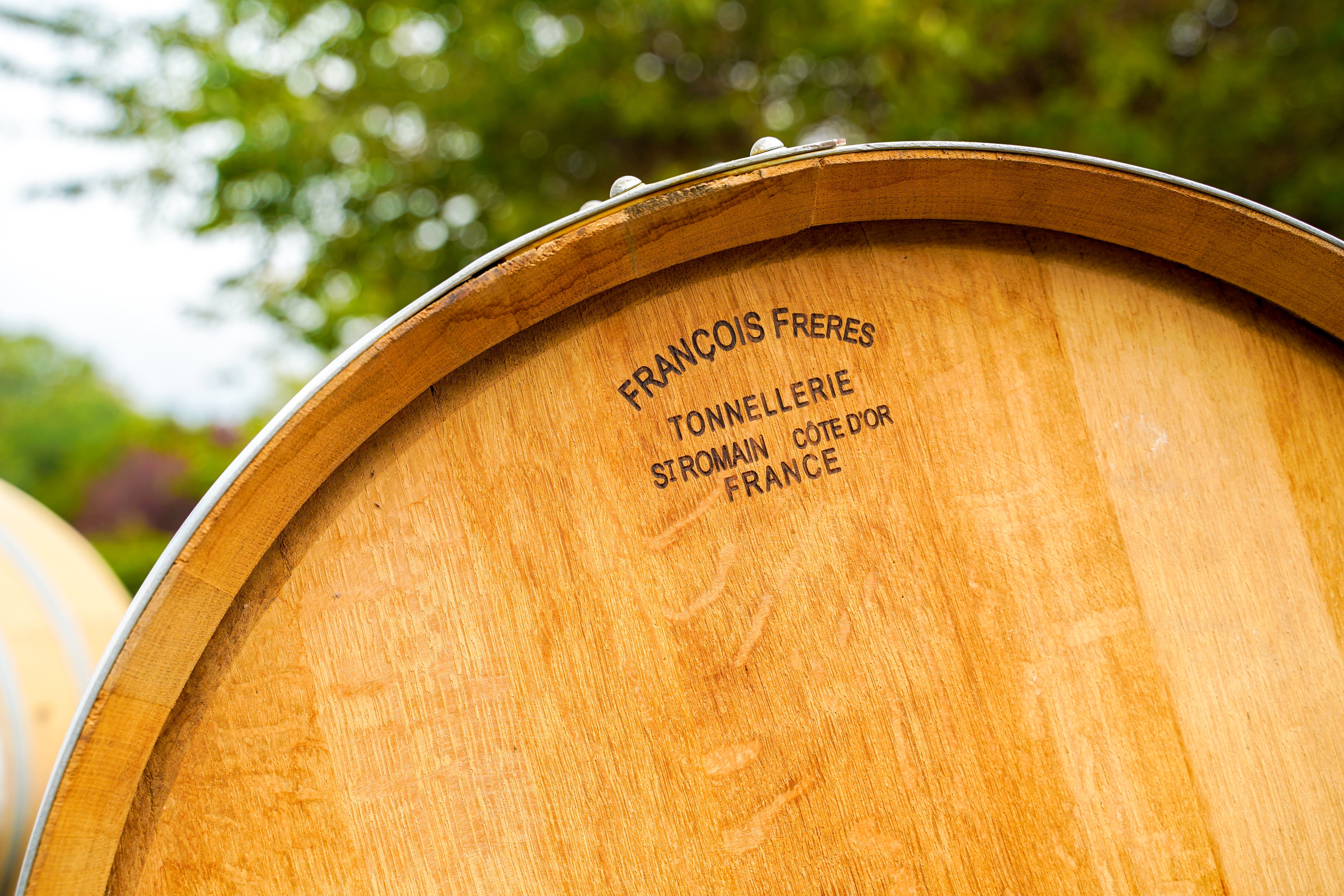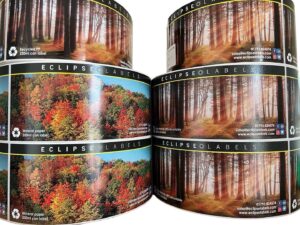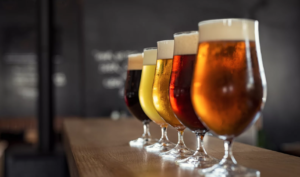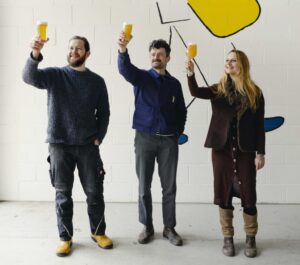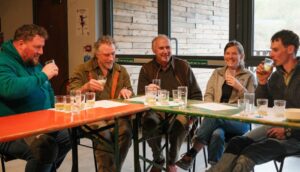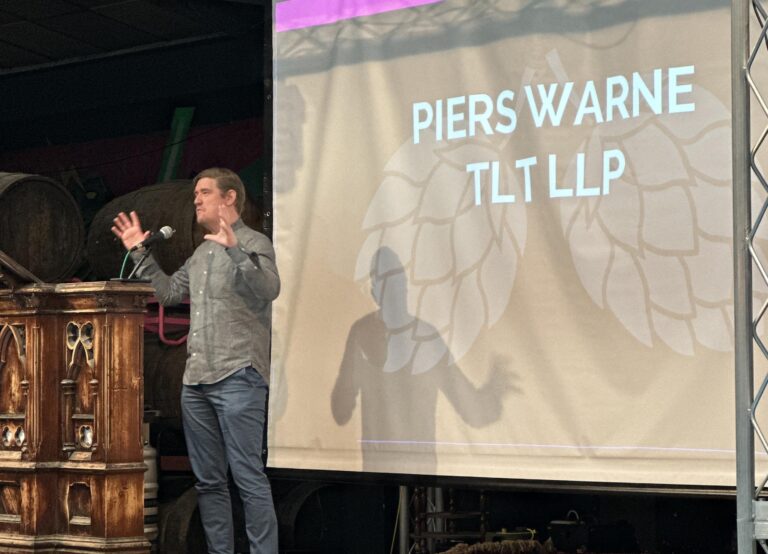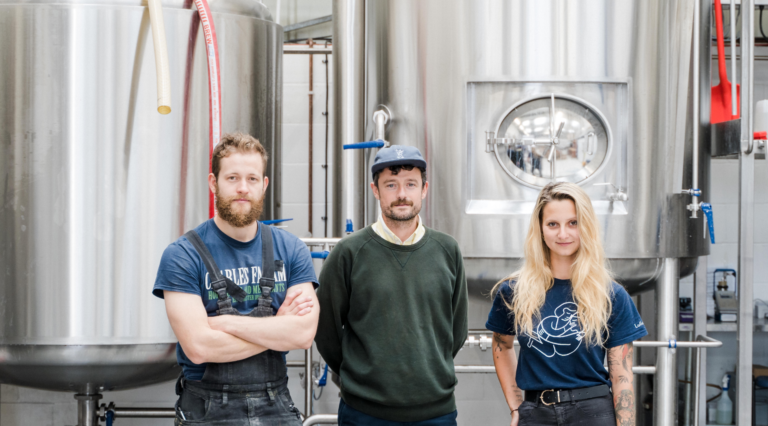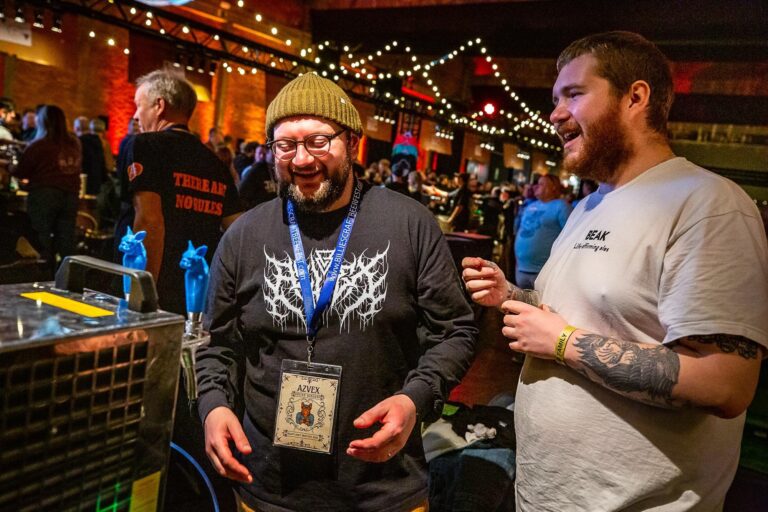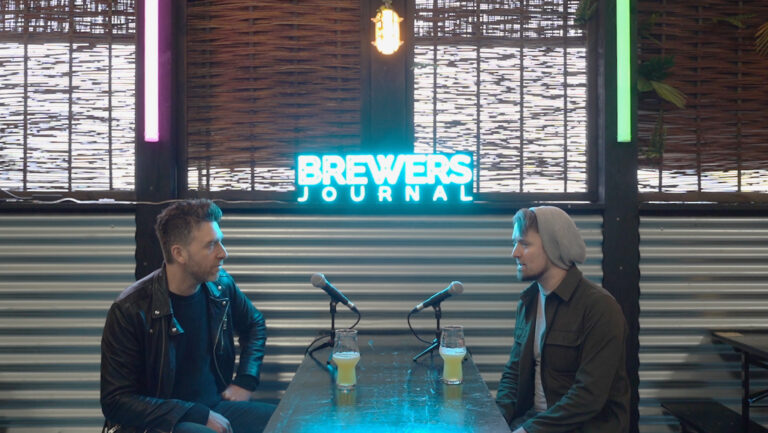Founded in 2013, Burning Sky have made an indelible mark on UK beer since day one. The Sussex outfit, led by Mark Tranter, are a benchmark to many brewers across the diverse spectrum of this incredible liquid. And after turning eight earlier this year, the brewery remains as eager as ever to challenge itself on making the best beer possible regardless of style, dispense or package.
Things at the brewery are more complicated than they were at the start, which is both good and bad. It means we are more things to more people, I guess,” muses Mark Tranter.
“Our ability to make good beer is also far greater than it was early on. But my headaches are much bigger than they used to be, too – and I don’t mean from drinking the beer!.”
It has been a busy few days for the team at Burning Sky. Mark Tranter, the brewery’s founder, has just been on an unplanned jaunt around Sussex to procure some hops for an upcoming brew, they’ve just launched their latest bottle release, a delectable Cherry Saison, and there’s a wealth of beer in tanks ready for packaging.
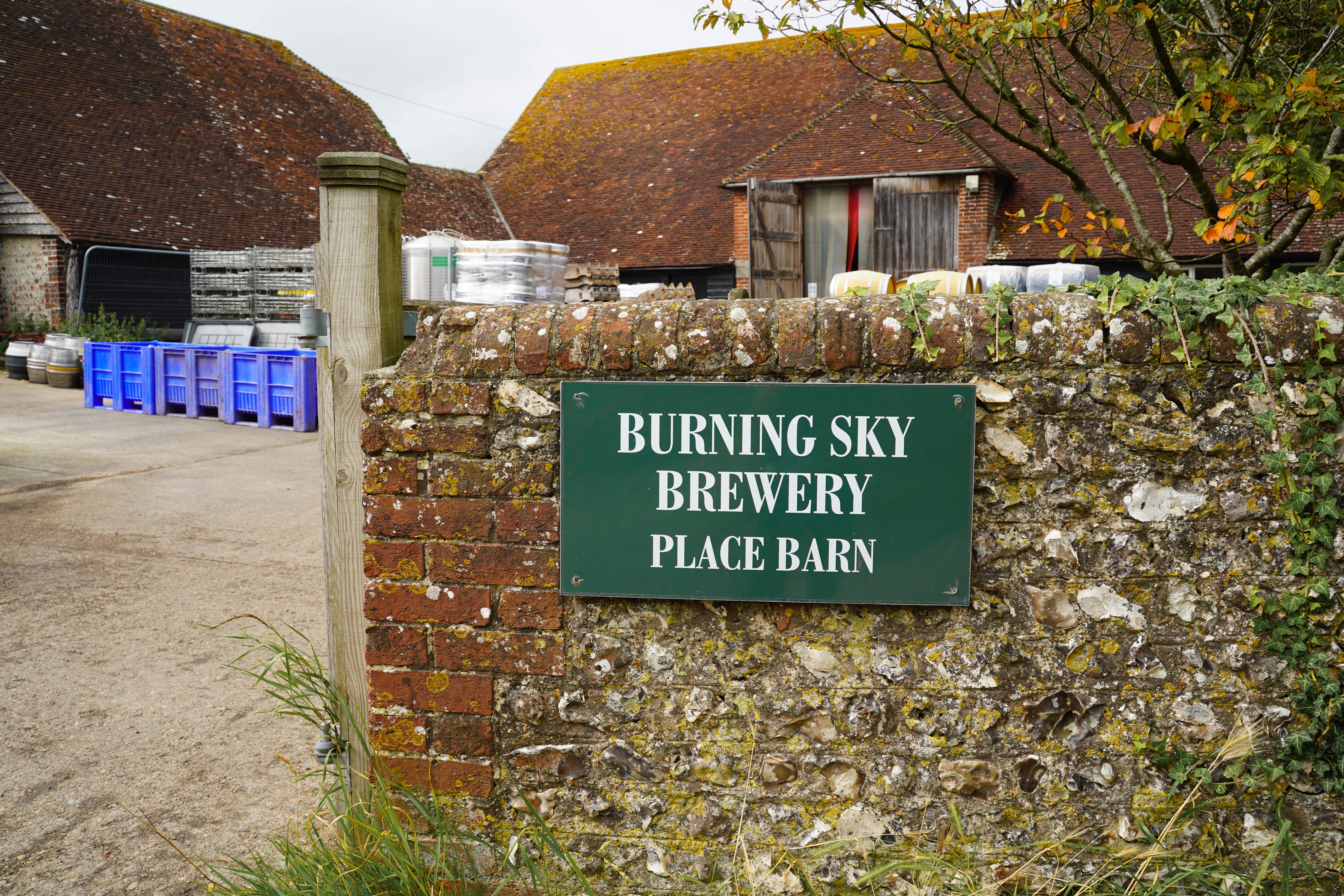
But, as Tranter explains, it’s all part and parcel of running a brewery.
“Our stock room is always full at the beginning of the week and empty at the end of it,” which is always incredibly gratifying,” he says. “It’s a lot of work, but the rewards are far greater.”
And one of the beers currently flying out is the aforementioned Saison. The 6.8% release features Sour Morello Cherries from Kent, delivered fresh and added to a nine month old foudre-aged saison. Further ageing and refermentation for a period of six months has resulted in a beer Tranter says is “as close to a Kriek” as the team could hope for.
With the Cherry Saison now in the wild, the brewery’s immediate attentions turn to an American Brown Ale for package in keg and can, a barrel-aged Imperial Stout, and Pale Ales Arise for keg and Aurora ready for cask. Oh, and the slim possibility of a Barley Wine before 2021 is out.
“But realistically, I think that’ll probably have to wait for next year.” he smiles.
But with the rollercoaster the brewery has been on during the last 18 months, like all of its peers, taking a moment to step back and reflect is probably no bad thing.
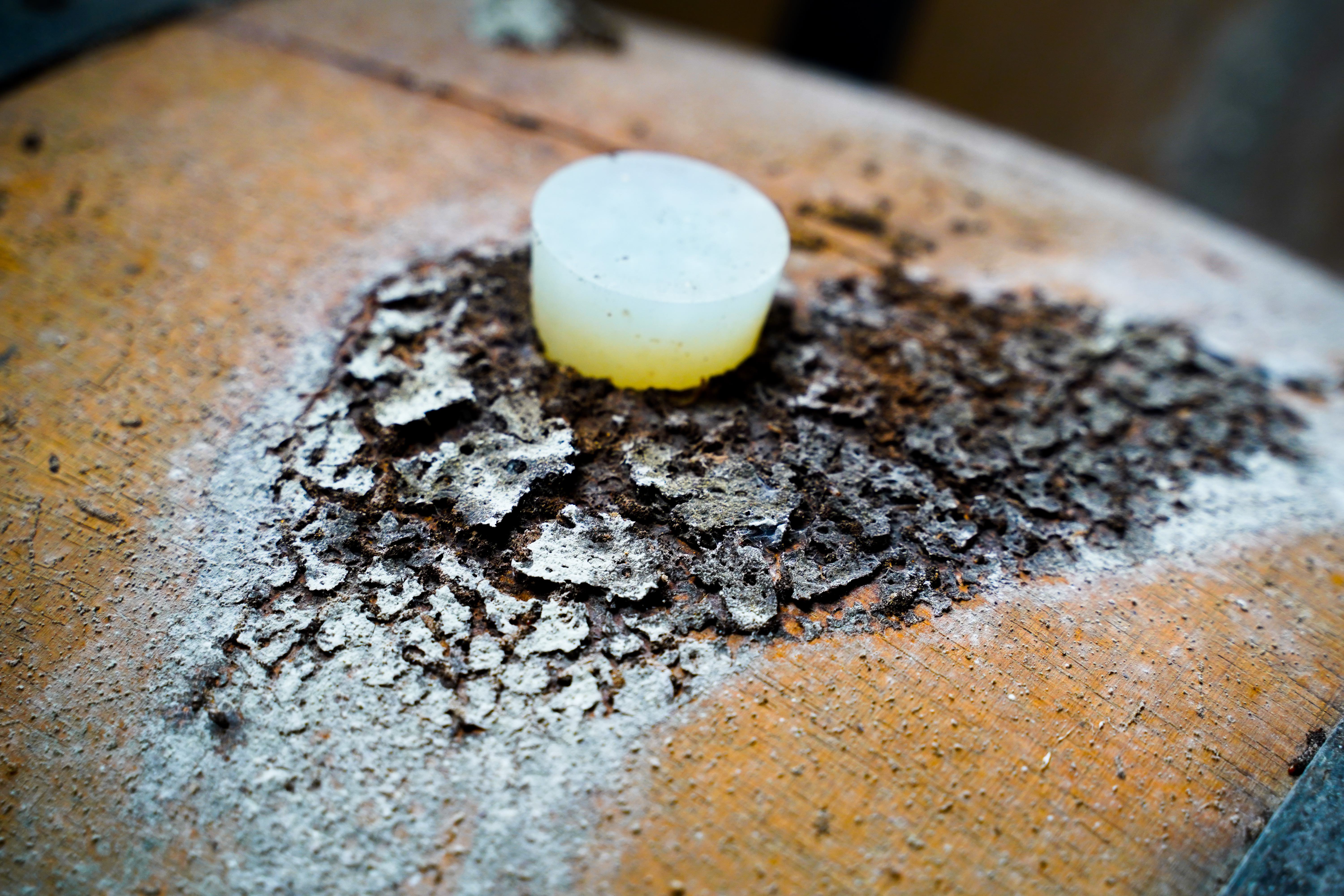
“When everything kicked off last year, of course we were worried. For the world as a whole and for the brewery, too,” recalls Tranter. “We had a lot of beer packaged, and a lot of beer in FVs but orders were being cancelled left, right, and centre.
“We were owed a lot of money and consequently, had very little – but as the world found a new way forward, everyone came through – which says a lot positively about who we trade with. The beer-buying public was very kind to us and those online sales helped keep us busy and make it through.”
He adds: “The on-trade was obviously the hardest hit. Everything was chaotic as you never knew what shape the wheel was going to be the next day.
“It certainly wasn’t going to be round. At best, some sort of oblong shape.”
“Why can’t beer be revered in the same way with a degree of maturity about it, rather than just it being an expensive Primark where everything is disposable.”
Mark Tranter, Burning Sky
In 2020, the Firle, East-Sussex-based brewery would end up having a strong year in terms of output. And while it could not support the on-trade relationships it places great value on, the team would produce a wealth of beer in bottle and can.
The latter was greatly enabled by the investment in an isobaric, counter pressure canning system from GAI at the tail-end of 2019.
“We were in the fortunate position of not having to join a queue for mobile canning service, and we already had an online shop in place,” he explains. “Although the canning line had only been installed a few months earlier, the ability to can and distribute our beers actually meant more and more people became familiar with our brewery during a tough year.”
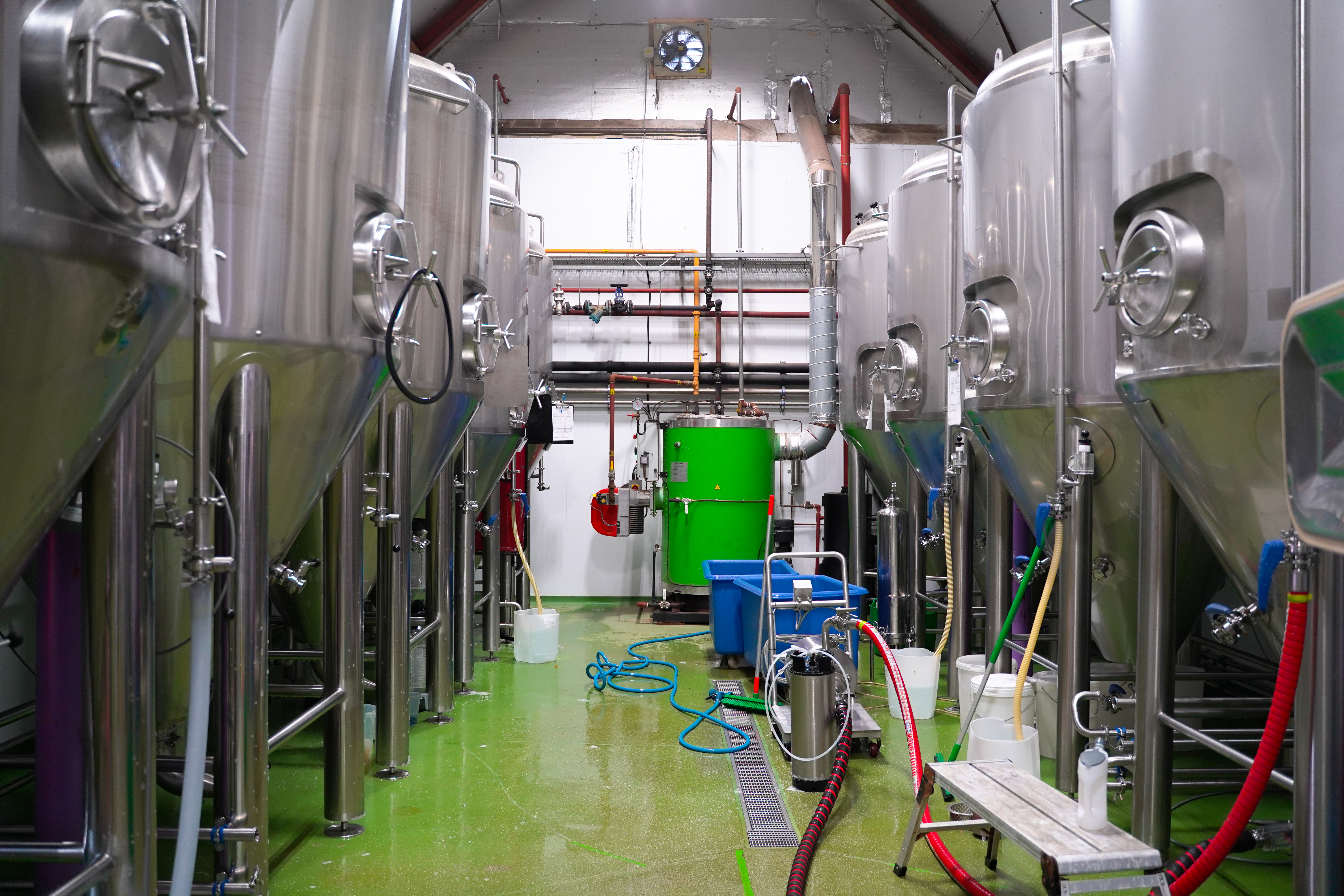
While demand for its canned beers have levelled off slightly in 2021, Tranter is enthused by the brewery’s capacity to return to packaging its beers in keg and cask for the on-trade. With market demand responding in kind.
“With people unable to visit the pub for such a prolonged period of time, it was great to be able to see that appetite return and for us to be able to get those beers back out there. Those customers, both local and national always have and always will be a big part of our brewery.”
Tranter says regardless of how your business emerges from the current situation, every brewery, pub and bar will be somewhat different for a very long time to follow.
“Whether it’s how people sell their beer, how people socialise or their buying habits, I’m not sure. And it’s too early to tell just yet,” he adds.
While it’s too soon to gauge the wider long-term impacts on the hospitality sector, Tranter is keen to point out that the brewery’s desire to brew a diverse range of styles, for a variety of package, never wavered.
“I suppose it’s grounded in my own brewing heritage. I’ve always been used to brewing a number of different beers. Our beers were never set out to actively include or alienate anyone,” he ponders. “I’d like to think we’re known for making a number of beers for a number of occasions, whether that’s a pint of pale ale on cask or a bottle of mixed-fermentation beer to share with others.”
He added: “I think we are quite… not unique – I don’t think that’s the right term, but we are different to the majority of breweries in the UK. I’m not saying that’s for better or worse, we’re just different.
“We don’t just make barrel-aged beers, or cask pales or IPAs. We enjoy the challenge of making beers that are outside of our comfort zone while hopefully executing them with a degree of ability, too.”
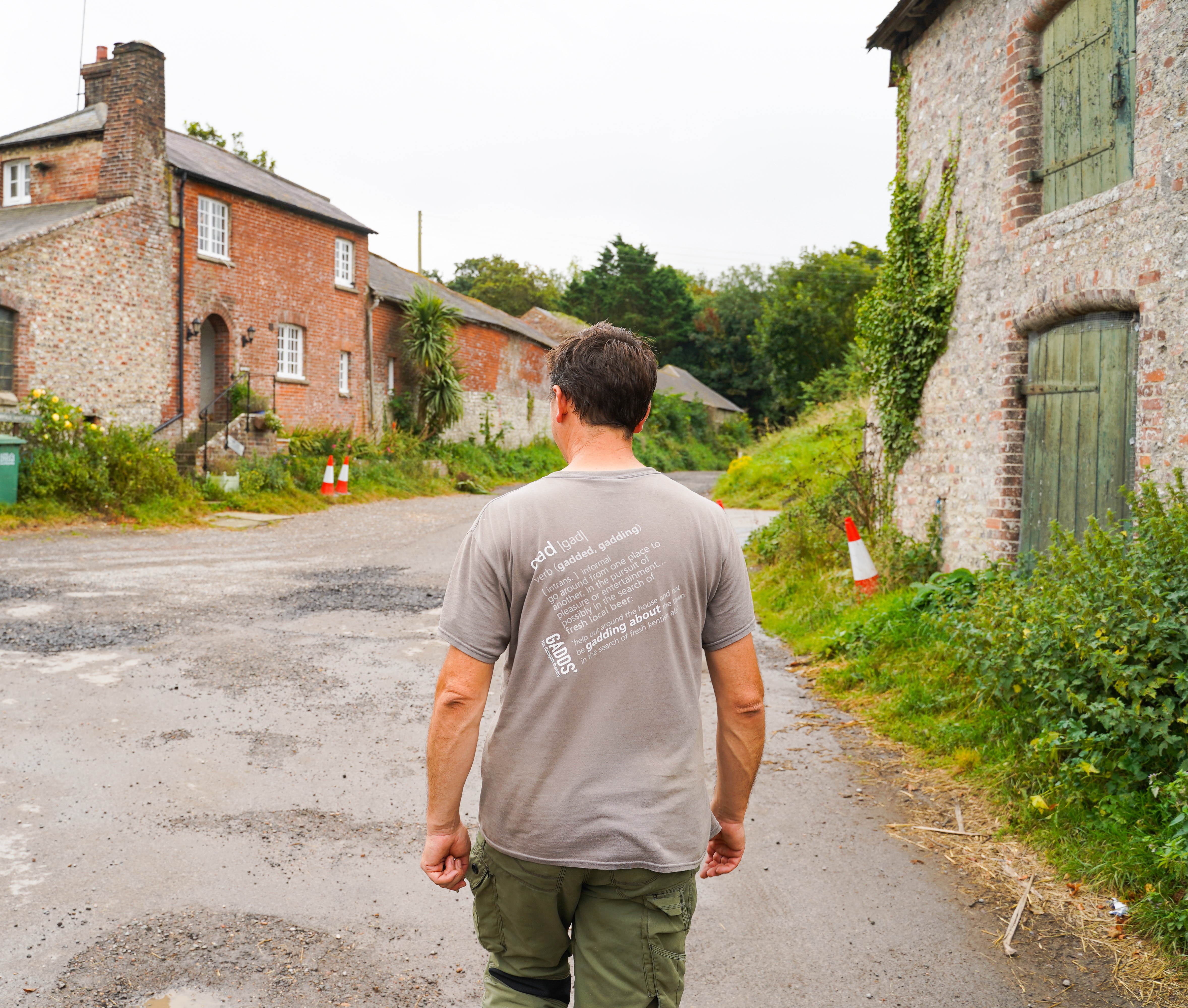
That ability is something that can be backed up by John Keeling, the former head brewer at Fuller’s in West London.
“Brewing is both science and art,” he tells us. “If you ever want to know about the art of brewing then drink one of Mark’s beers.”
The Burning Sky of 2021 is completed by Tom Dobson, Claire Simpson, Claudia Asch, Luke Gosling and Nathan Coles.
Claudia Asch joined the brewing team last year, to replace Robin Head-Fourman who joined Lewes-based Beak Brewery as their head brewer. Moving from Cloudwater Brewery in Manchester to Sussex 10 days before the first lockdown, Claudia was kept ruthlessly busy at the helm of the new canning line.
Nathan Coles, a builder by trade, is a long-time friend of Tranter and has been a valuable part of the brewing team for several years. Initially helping out with bottling on an ad hoc basis, Nathan stepped in as the Burning Sky got busier – becoming a full time brewer in 2018.
Claire Simpson, Tranter’s partner, runs the online sales and looks after the website. “Claire has always been a great support to both me and the brewery. In 2019 she finally left a more corporate job to start up our online shop – during lockdown this (along with the newly-installed canning line) proved to be a Godsend and helped us keep our head above water”.
Luke Gosling started as a delivery driver soon after the brewery was founded. Luke went on to become responsible for looking after their orders and delivery logistics. “Having someone on board who has a good eye for detail when it comes to administrative work and enjoys geeking out on computers is a huge help to us – brewing is almost the easiest bit!”.
Tom Dobson has been part of Burning Sky, as Tranter explains, since “day dot”.
“Tom was a homebrewer who wanted to get into brewing,” he says. “I told him there was a local home brewing competition taking place at a Lewes pub called The Snowdrop Inn, and that he should enter. What I didn’t tell him was that I was a judge! Of course, I wanted to see what his beers were like. Were they good? They were good enough for me ”
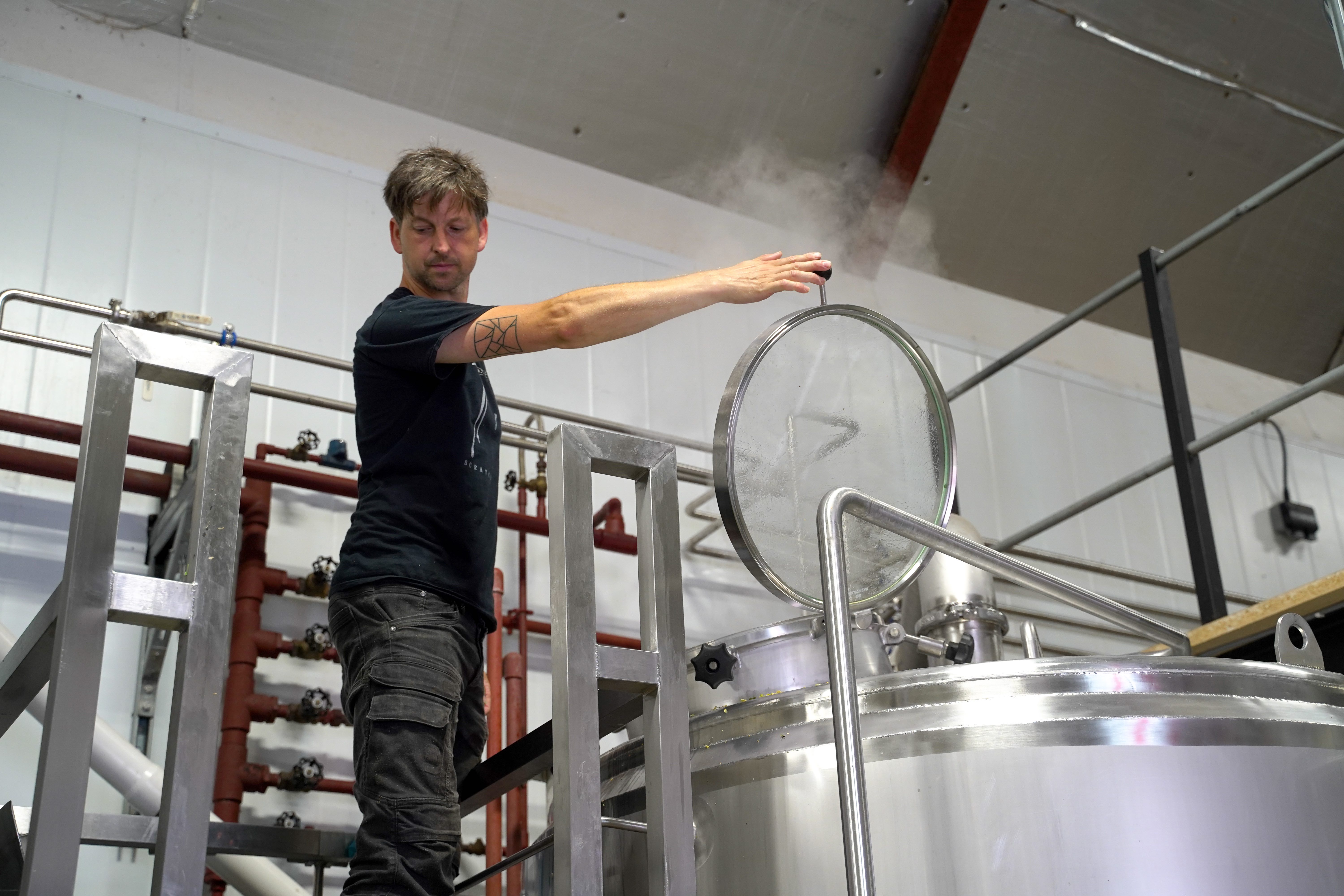
The would-be brewery founder saw some similarities in Dobson that echoed his own early days in brewing.
Tranter grew up in Bradford-upon Avon in the West Country, surrounded by avid home brewing parents. Following his graduation, he would end up putting the beery knowledge he absorbed to great use when moving to Brighton.
It was here he’d combine helping a friend with a record distro, putting bands on alongside a stint as a chef. He also liked to drink in The Evening Star pub on Surrey Street, a stones throw from Brighton station and only a brisk ten minute walk from the seafront.
That pub was home to Dark Star, a small brewery in the pub’s cellar. Its founder, Rob Jones, offered Tranter a position in 1996 and it would soon go from strength-to-strength, leading to a site move to a purpose-built brewery five years later.
He would go on to spend 17 years working for the business, one that would go on to be fully-acquired by London-based Fuller’s at the start of 2018.
“It has been fantastic to see Burning Sky become such a success story, becoming a leading light on the UK beer scene.”
Rob Lovatt, Thornbridge
Despite the best part of two distinguished decades at Dark Star, Tranter remains grateful for the opportunity its founder gave him early on. Something he was also keen to do in hiring Dobson.
“Back in 1996, I was given the chance by someone. It is one of those things that seemed quite rewarding to be able to do for someone else,” he says. “And Tom has gone on to play an important part in the brewery ever since – someone to bounce flavour and beer ideas around with.”
And while not part of the team per se, Bristol-based comic artist and illustrator Simon Gane has helped bring many of the brewery’s beer to life thanks to his vibrant artwork that adorns small pack labels and pump clips.
“We were at school together and he’s my best friend. Without saying how old we are, we have known each other a lot longer than we haven’t,” laughs Tranter. “We share a common aesthetic and both went to art school. The only difference is he’s good at it.”
He adds: “His work is striking. I feel that it is so different to most breweries artwork and the more I let him do his own thing, the better it gets! He knows how to convey themes of conviviality and inclusiveness, coupled with European aesthetics, that really resonate with me.”
Both Tranter and the team enjoy creating and formulating new beers as much as they do refining, improving and observing change in existing members of the Burning Sky family.
“Brewing a new beer is exciting, but it’s rare to get it exactly right the first time,” he explains. “There should always be a degree of learning in any beer you make and for me, one-off beers are not a true reflection of a brewery’s capabilities. Instead, they should only be a starting point for something bigger.”
Tranter adds: “Since the beginning I’ve always been keen on annual bottle releases, like they do in the wine world. People in wine can always look forward to different vintages and annual releases.
“And, I think, if we can consider some of the money that people charge for some beers, then why can’t beer be revered in the same way with a degree of maturity about it, rather than just it being an expensive Primark where everything is disposable.”
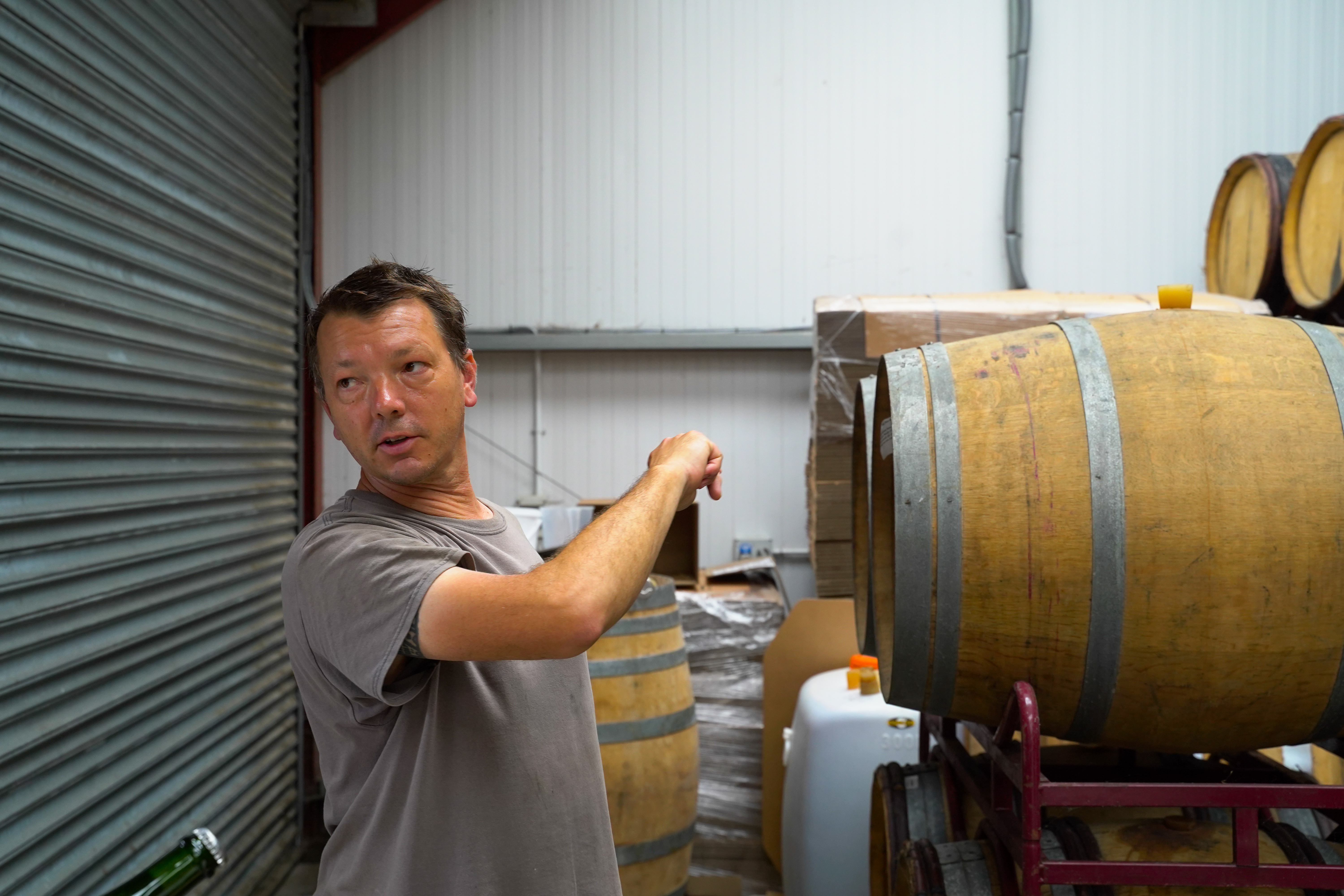
The brewery’s founder says that commitment to improvement is simple.
“You never release anything, that’s perfect. That’s impossible. But there should always be a drive to make something better, to develop a greater understanding of your beers,” he says.
“I don’t look at us as if we’re a factory producing macro lager – which is a marvel in itself, being able to brew the same beer the world over. Ultimately you need to consider the consumer because, when it comes down to it, they are purchasing a luxury good and you owe it to them to do the best you can.”
And after turning eight earlier this year, it’s pretty safe to say Tranter and his team are doing just that. The brewery is just part of a different landscape now, that’s all.
“Back in 2013, with the exception of Wild Beer Co, there wasn’t really anyone doing what we were doing,” he explains. “I was adamant about a few things like putting barrel-aged beers in Champagne bottles.
“I thought if people in Belgium and the US can cope with that, then why not the UK? We ended up doggedly sitting on things for months at a time but now they thankfully get snapped up. So it shows how much the world has changed in a relatively short space of time.”
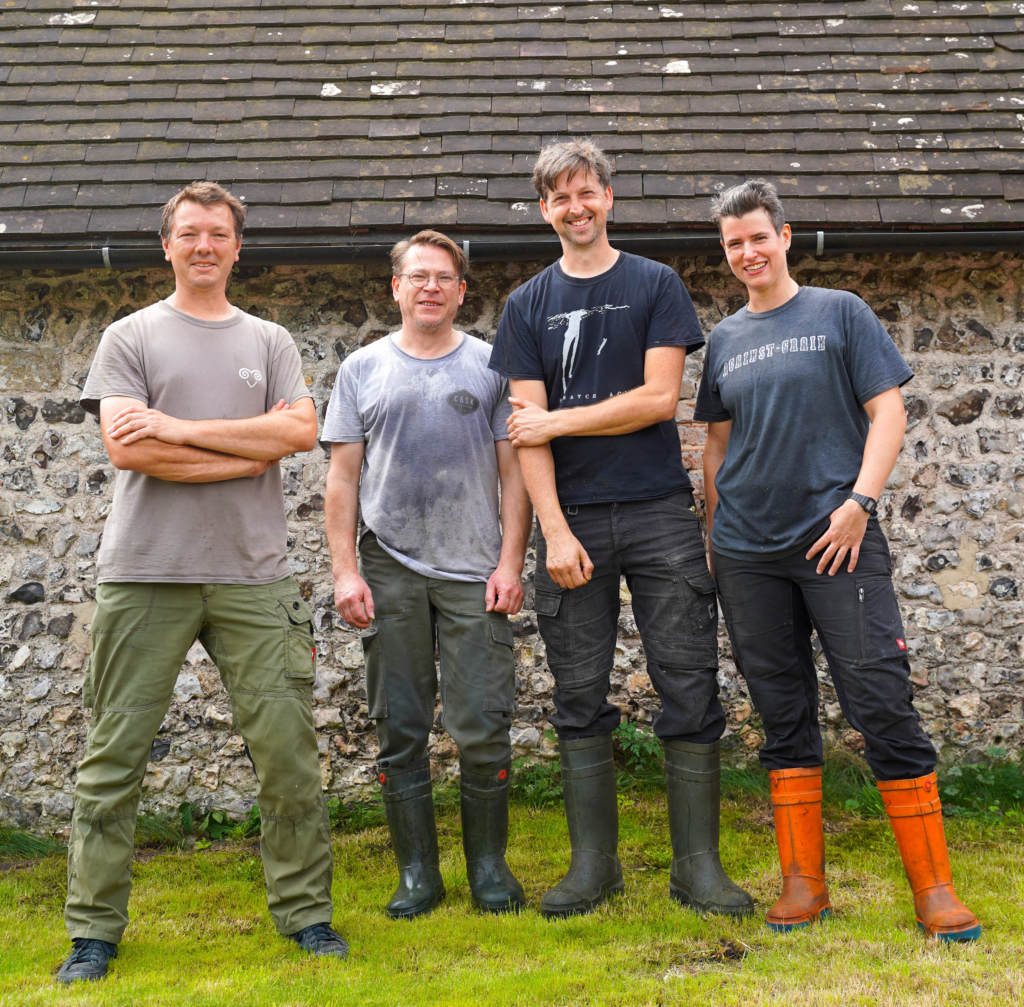
Tranter adds: “You have breweries like Mills, Deya, Yonder, The Kernel and Wild Beer Co producing these types of beers. What was a very difficult market some years ago is now fairly buoyant and my hope is that to some extent, we played a little part in that.”
“For as long as I have known him, Mark has been extremely passionate and knowledgeable about the great beers of Europe, such as Saison, Lagers and Lambic, as well as Great British cask beer, says Rob Lovatt, head brewer and production director at Thornbridge.
He adds: “It’s a bold move to set up your own brewery to brew the styles you want to drink, rather than just brewing beers which are on trend. It’s been fantastic to see Burning Sky become such a success story, becoming a leading light on the UK beer scene. The quality and range of beers they are producing is just what I would expect from Mark.”
Theo Freyne, the founder of Deya in Cheltenham, however is more direct.
“Mark and Burning Sky are an inspiration to us and to so many breweries in the UK,” he exclaims.
“They do everything to such a high standard and their beers are world class, delicious and unique to their brewery.
“Bucket list stuff!”

